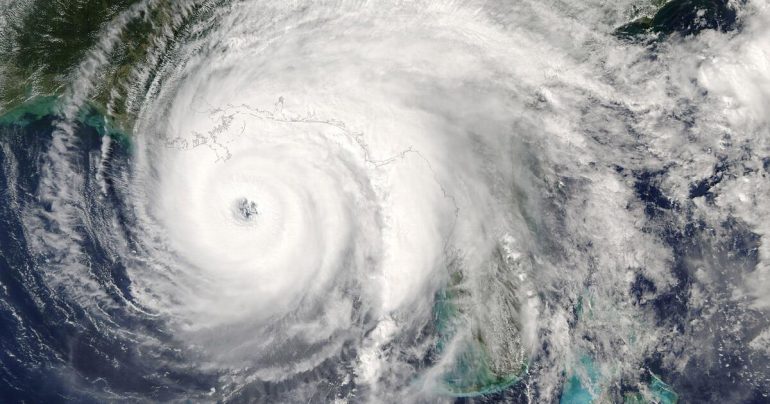Updated on 05/02/2022 at 09:58
- Climate change is expected to cause more severe cyclones in the coming decades.
- Hong Kong, among others, is probably at very high risk of a Category 3 hurricane by the middle of the century.
- The risk is also rising in many other regions of the world, the researchers warn. But there are exceptions also.
Through Climate change The risk could be more serious storm Many tropical regions of the world will more than double by 2050. This is the result of a scientific study with four high-resolution simulations over a long period of time. However, there are two exceptions: according to calculations, the risk will probably decrease over the Bay of Bengal in the northern Indian Ocean and remain roughly the same in the Gulf of Mexico and the Caribbean. The study by a group led by Nadia Bloemendl of Vrije Universitt Amsterdam (Netherlands) is published in the journal Science Advances.
Risk Calculations: Can Stop Zones
“Our results may help identify locations where the risk of tropical cyclones is greatest,” explained Bloemendl. Based on this, local governments can take risk mitigation measures in their area to reduce damage and deaths. So far, global climate models have not been detailed enough to estimate cyclone risk at the local level.
According to the researchers, the “Storm” statistical model used offers two advantages over previous methods: on the one hand, the spatial resolution with a ten-kilometer grid is much better than the best models used to date. On the other hand, the simulation of tropical cyclones extended to 1000 years. Since such weather events are relatively rare in a single region, a longer simulation route is helpful for determining reliable statistical values from random individual events.
Using hurricane data between 1980 and 2017, the researchers developed a baseline model. The most important values are the water temperature and wind speed just below the sea surface. The scientists used this base model to compare simulations across four high-resolution models. In the simulations for the period 2015 to 2050, climate change was reproduced using a scenario with high greenhouse gas emissions (SSP 5-8.5 from the IPCC status report).
Read also: “From rain forest to savannah”: still too many destroyed tropical forests
Hurricanes Are Not Getting More Frequent – But Heavy
Simulations have shown that the total number of tropical cyclones worldwide will not increase until 2050, but the number of severe cyclones will increase. These are Category 4 and 5 hurricanes on the Saffir–Simpson Hurricane Wind Scale. A wind speed of at least 209 kilometers per hour must be measured for at least one minute to be classified as Category 4. According to simulations, the risk of such monstrous storms will double in many oceanic regions by 2050. that the danger in the Bay of Bengal will be reduced and Caribbean remains roughly the same, the researchers explain with the geographic features of the two regions.
The high resolution also enables forecasts for individual countries’ coastal areas. For the Cambodian coast, simulations showed that by 2050 the number of residents affected by Category 1 hurricanes could increase to 125 times the current value. The number of people affected by a Category 3 storm in Australia could increase by 94 times. as well hong kong (China) is expected to be at very high risk for Category 3 storms by mid-century. (SBI/DPA)

The Intergovernmental Panel on Climate Change published its sixth report on Monday. The results are bleak. According to studies, humanity has little time to avert the drastic consequences of climate change.

Introvert. Proud beer specialist. Coffee geek. Typical thinker. Pop culture trailblazer. Music practitioner. Explorer.





